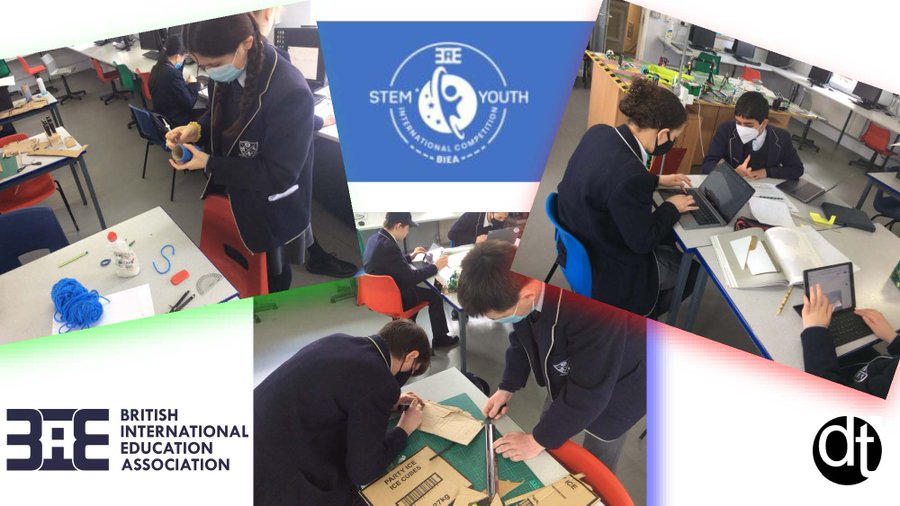STEM competition engage buddying engineers rethink school food packaging

The momentum is gathering pace for the 2021 BIEA International STEM Youth Innovation Competition (@BIEAeducation), the flagship climate action programme from the British International Education Association.
Since the launch in January 2021 with COP26’s Regional Ambassador Ken O’Flaherty, there has been big interest from schools and teachers from around the world. Despite the ongoing pandemic, applications are coming in from over 40 countries and regions, supported by BIEA’s growing international network. In less than 5 weeks, 36 teams will proceed through to the next round based on their qualification scores on 18th June 2021.
Each year a theme connecting world issues and technology is chosen for the competition. This year’s theme is “RePack to Restore Our World”. The COVID pandemic increased the world’s single-use plastic to an all-time high, and disposable food packaging waste is a global problem. Students between the age of 9-21 working in teams have been asked to come up with alternative sustainable food packing designs for school and workplace lunches. The teams have to research existing packaging materials, analysing the pros and cons of plastic packaging, make physical prototypes of their sustainable food packaging materials and conduct experiments for their solutions.
These 10-year-olds from Chung Hwa Langkawi School in Malaysia experimented with bamboo and coconut
In the next round, qualifying teams will be asked to conduct a packaging challenge in their local community. They will also be asked to present in front of an international Judging Panel in a Dragon’s Den-style virtual meeting. The judges are STEM experts from UCL, Imperial College, the Royal Institutions, the British Council as well as leading scientists from abroad.

Students from Sherfield School in Hampshire working on prototypes using cardboard and CAD
Young people today are more conscious of the environment than ever before, they want to invest and protect the world that is their future. The competition provides a platform for their voices to be heard. The drive and determinations of these young people and their teachers are to be celebrated. Teams from countries crippled by COVID such as India are pushing on with their projects, despite access issue to prototyping supplies.
There is still time to take part in the competition wherever you are in the world.
About the competition
The BIEA International STEM Youth Innovation Competition is BIEA’s flagship program designed to encourage students to pursue study and careers in science, technology, engineering, and math (STEM). It presents a unique opportunity to motivate the next generation of leaders who will change the way we explore and connect in the world. One theme is chosen each year to reflect the pressing issues and challenges in today’s world and how technology could be used to in solving these challenges. The competition spans four age ranges: 9-11, 12-14, 15-17 and 18-21. Entry teams are made up of 3-5 students supported by a teacher. There are five main components to the competition: report writing, innovation, presentation, Dragon’s Den style pitching and fixed tasks.
BIEA promotes friendly competition among teams from diverse socio-economic backgrounds, ethnicities, and geographies – from emerging towns in Nigeria to the historical capital city of China. Each year approximately 40% of the entries are from girls.
David Hanson, STEM Chairman, BIEA;
“BIEA aims to bring together educators and young people of all ages from around the world who share a passion for Science, Technology, Engineering and Mathematics (STEM). We hope our chosen topic will not only illustrate to the audience the importance of technological innovation when it comes to environmental protection and climate change but also inspire the next generation of STEM graduates to put their minds to solving these pressing world issues”.
Ken O’Flaherty, COP26 Regional Ambassador
“The voice of young people around the world is a powerful catalyst for change. Young people didn’t create our current climate crisis. But the impact of climate change will be most keenly felt by the younger population. We recognize and welcome the exceptional engagement already being made by young people around the world in pressing for urgent action. “











Responses